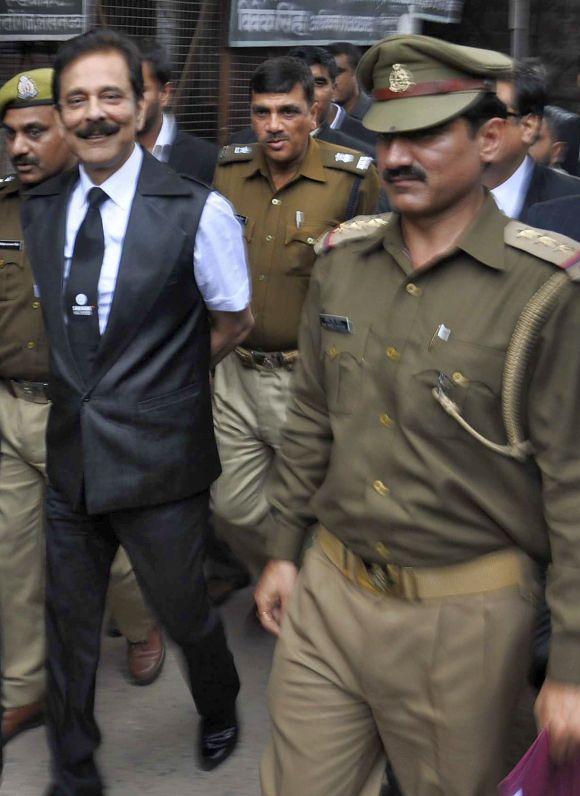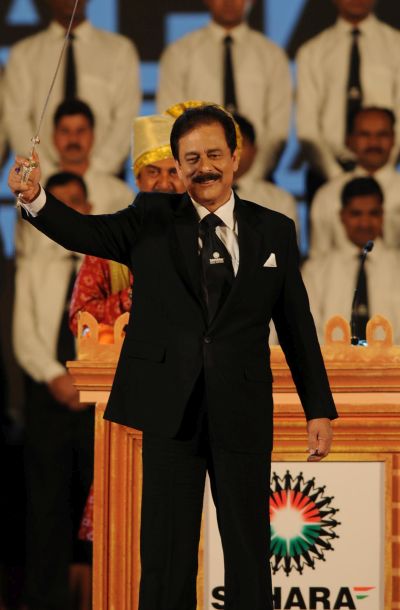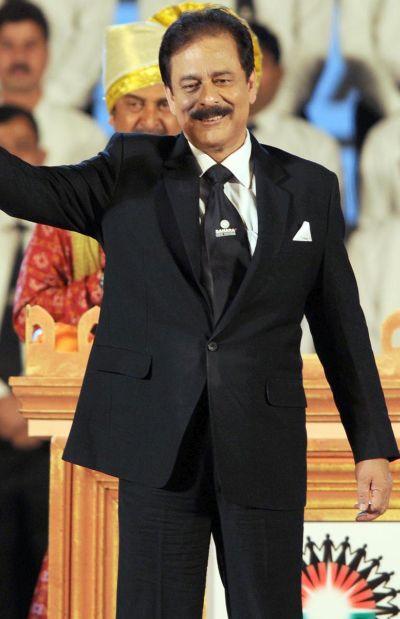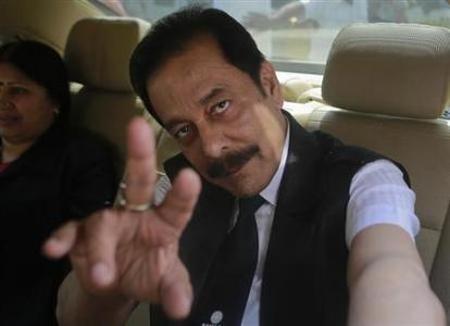 | « Back to article | Print this article |
Will pay Rs 3,000 cr within 3 days of Roy's release: Sahara
The Supreme Court on Monday reserved its order on Sahara Chief Subrata Roy's petition challenging its decision to send him to jail in the case relating to non-refund of more than Rs 20,000 crore (Rs 200 billion) of investors money.
A bench of justices K S Radhakrishnan and J S Khehar also agreed to consider Sahara's proposal for paying Rs 10,000 crore (Rs 100 billion) for getting bail to its chief Subrata Roy and two directors who are in Tihar jail in judicial custody since March 4.
Click NEXT to read further. . .
Will pay Rs 3,000 cr within 3 days of Roy's release: Sahara
In its new proposal placed on Monday, Sahara group assured the court that it will pay Rs 3,000 crore (Rs 30 billion) within three-four working days and another Rs 2,000 crore (Rs 20 billion) in cash by May 30.
It also submitted that they would furnish a bank guarantee of another Rs 5,000 crore (Rs 50 billion) on or before June 20.
The apex court had earlier imposed a condition that Roy will be freed on bail only if he pays Rs 10,000 crore (Rs 100 billion) out of which Rs 5,000 crore (Rs 50 billion) has to be in bank guarantee and rest Rs 5,000 crore (Rs 50 billion) in cash.
Click NEXT to read further. . .
Will pay Rs 3,000 cr within 3 days of Roy's release: Sahara
Roy and the other two directors of the Group have been in judicial custody since March 4 for not abiding by the apex court's order for depositing Rs 20,000 crore (Rs 200 billion) of investors money with Securities and Exchange Board of India.
Sahara group submitted that Roy be released forthwith to facilitate negotiations with people for the purpose of raising money to comply with the apex court's order.
It also pleaded that its bank accounts be defreezed which was frozen by the court on November 21 last year.
Click NEXT to read further. . .
Will pay Rs 3,000 cr within 3 days of Roy's release: Sahara
In the meantime, senior advocate Arvind Datar, appearing for Sebi raised question on the account book of Sahara different firms, an argument which was strongly opposed by Sahara.
Sixty-five-year-old Roy had earlier submitted that the apex court's order for detaining him for not paying over Rs 20,000 crore (Rs 200 billion) of investors' money with Sebi was illegal and unconstitutional and sought quashing of the order.
Click NEXT to read further. . .




